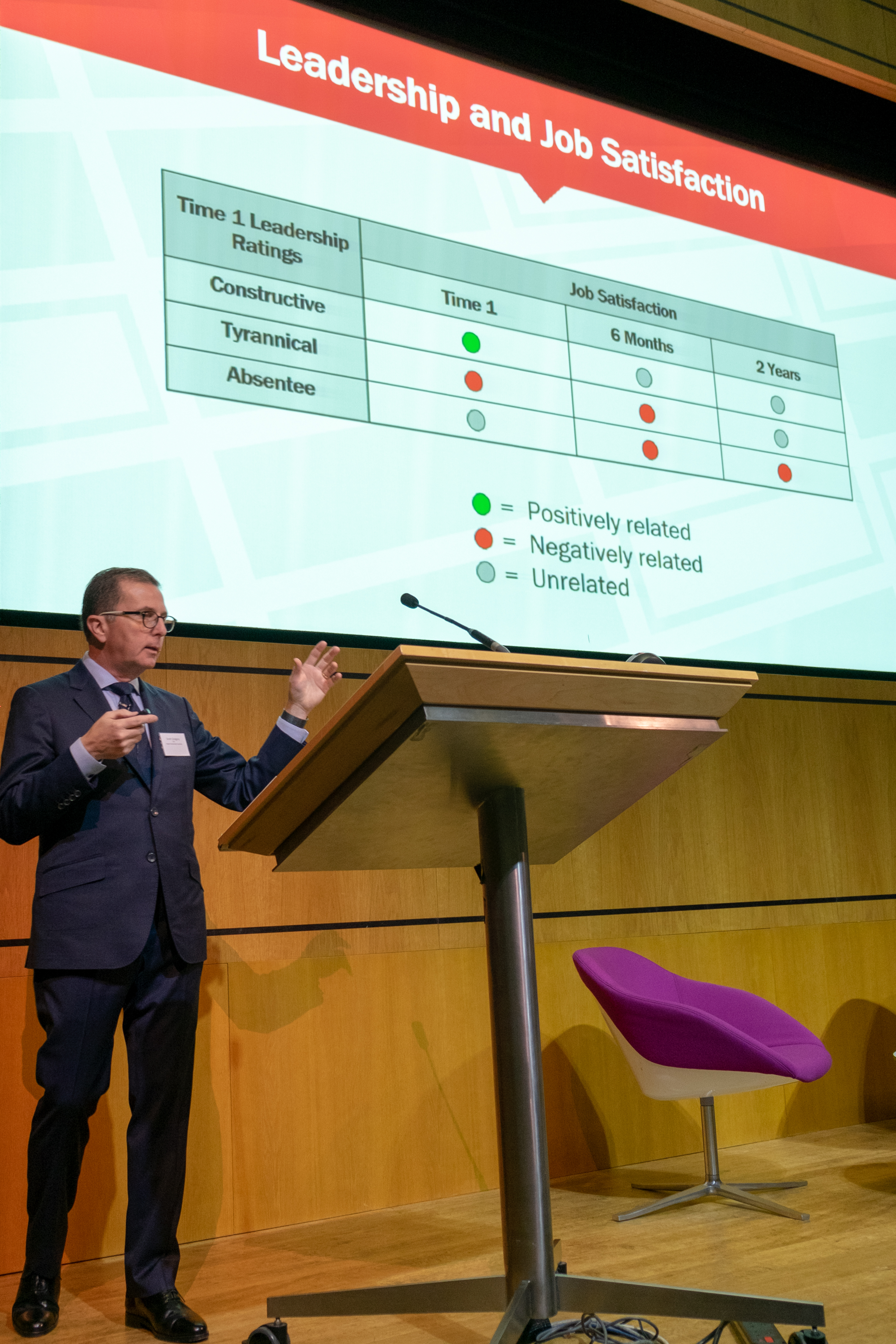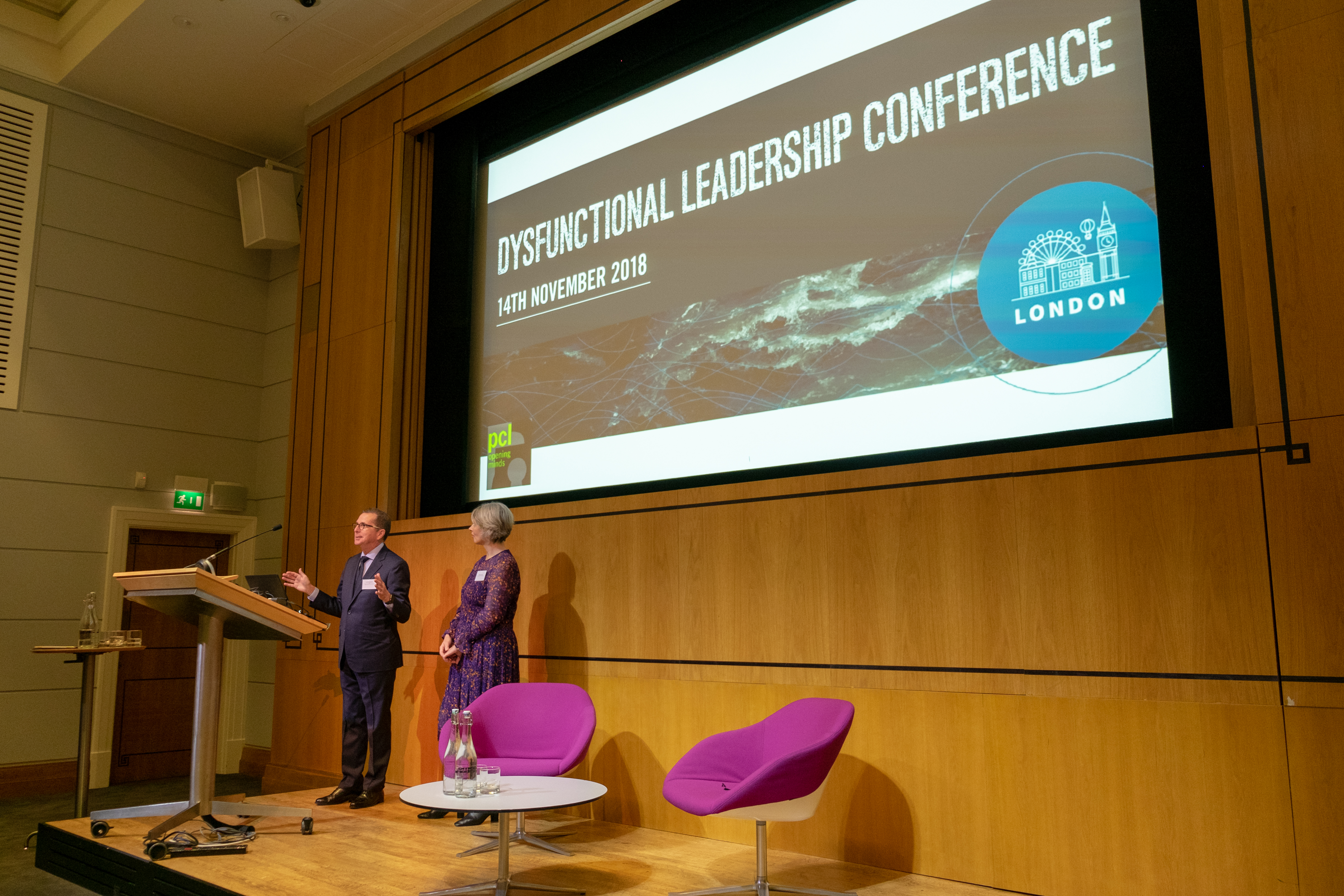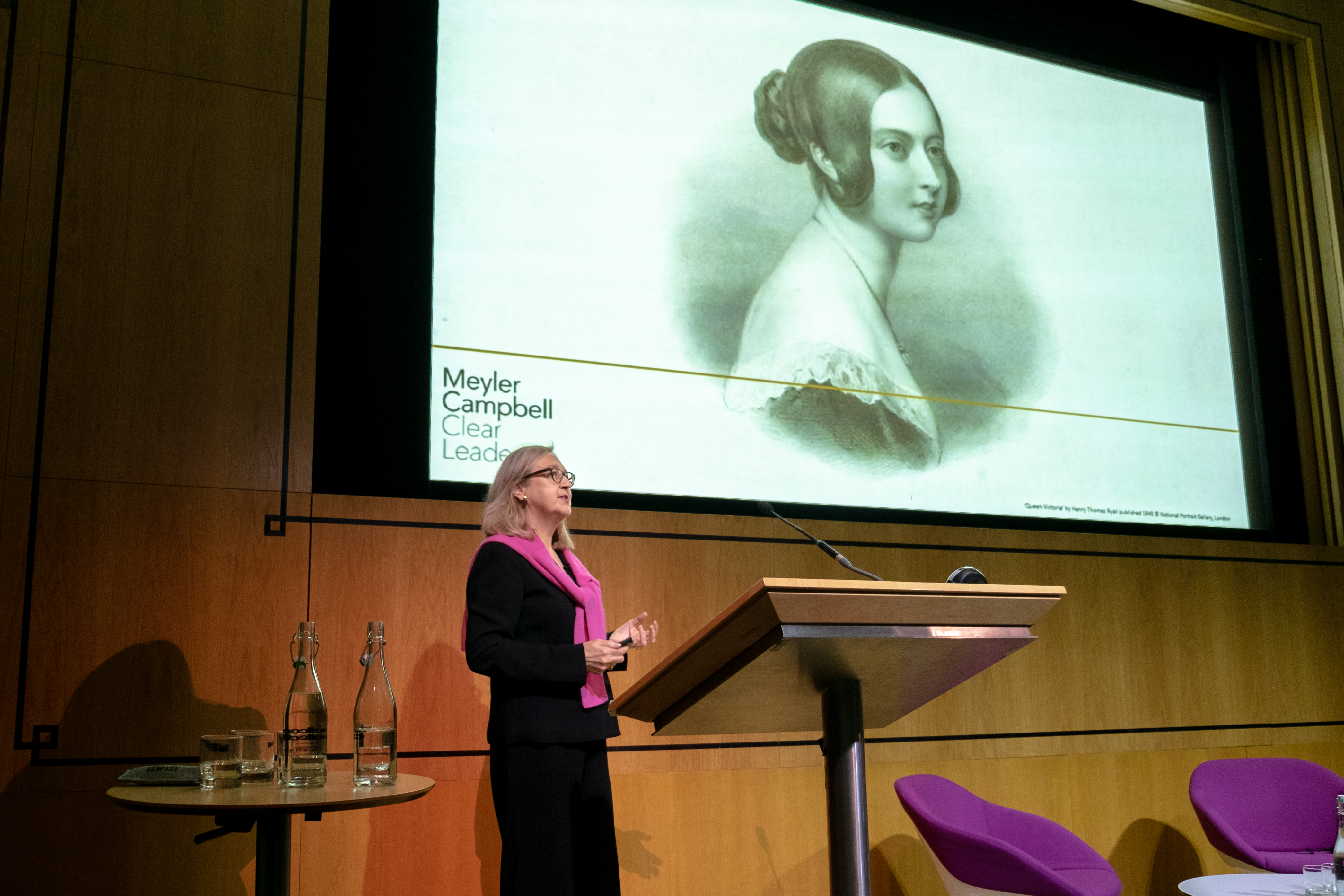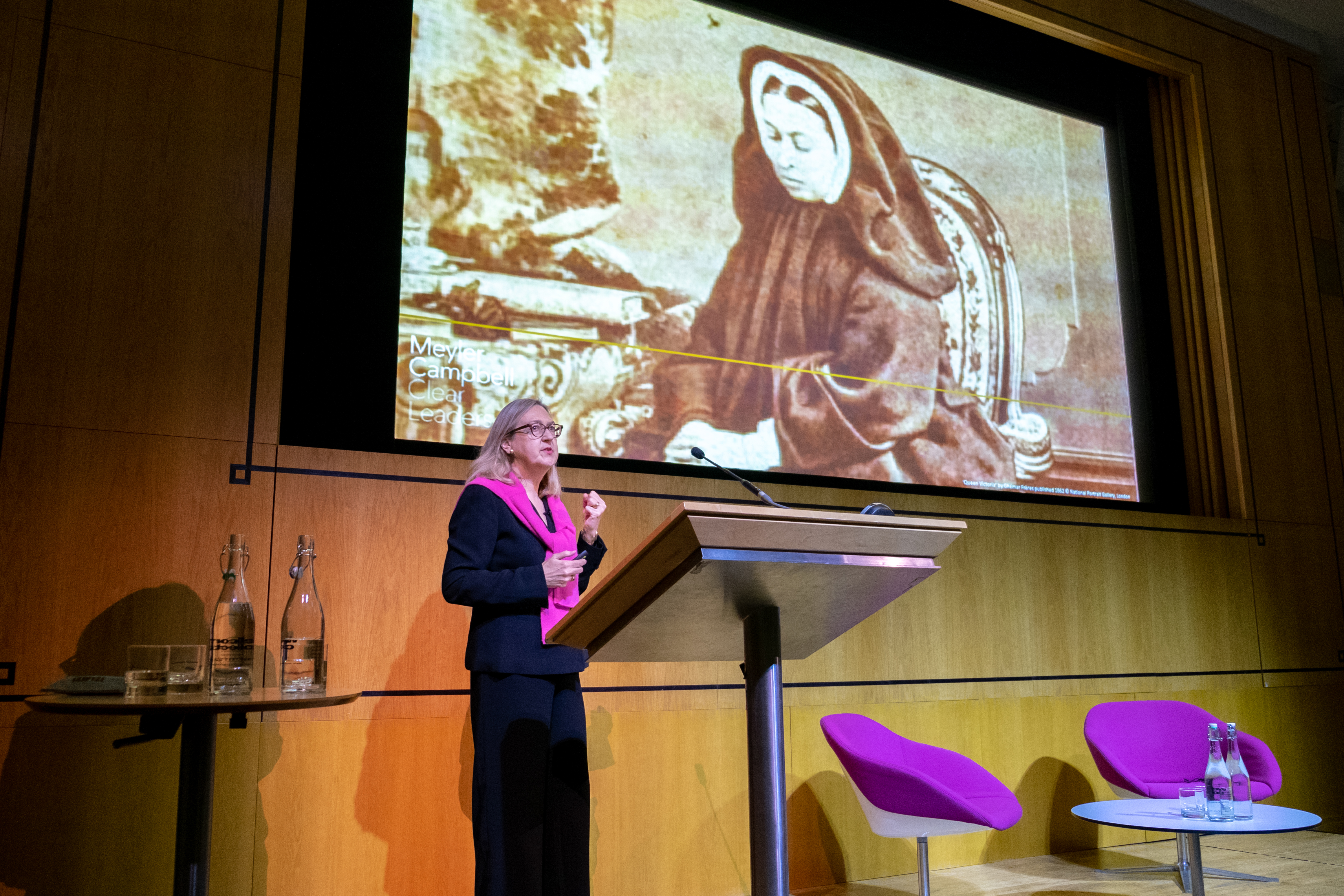Earlier this month we held our Dysfunctional Leadership Conference at the Wellcome Collection in Central London. It was great to see so many of our clients, as well as some new faces in the crowd. If you made it, we hope you enjoyed it!
We’ll be sharing footage of the event shortly, but in the meantime we’ve written up the key take-aways from each session of the Conference and we’ve got some photos to share with you too.
Absentee Leadership, Scott Gregory

Scott is better placed than most, with the exception of Bob Hogan himself, to comment on the use of personality assessments in the workplace. His focus for the Conference was on absentee, or laissez-faire, leadership – where leaders and managers are physically present, but they abdicate or fail to take on the responsibilities and duties assigned to them.
Absentee leadership is difficult to identify: it can go unnoticed for some time because while there is no active positive leadership, there is no active destructive leadership either. Absentee leaders may be ineffective, but the nature of their dysfunction means that they keep themselves to themselves and don’t alert the attention of senior management. If you think, for a moment, about CEOs that have appeared in the media recently, chances are these leaders have attracted negative press attention for something they have done wrong – not for something that they’ve failed to do. That’s the central problem with absentee leadership – until it’s too late, it’s almost impossible to identify. And it is worryingly impactful – Scott drew on research to show that absentee leadership has an even more pervasive and long-lasting negative influence than dark side destructive tendencies.
Further Reading
The Most Common Type of Incompetent Leader
The Perils of an Absentee Boss
How Can You Tell Someone Is A Truly Bad Boss?
When A Leader Mourns, Anne Scoular

Anne, who is Co-Founder of Meyler Campbell and is now pursuing her interest in history, spoke at the Conference about something a little different: the impact of grief and bereavement on Queen Victoria’s leadership.
When Prince Albert died in December 1861, Queen Victoria withdrew. She still performed her royal functions at an administrative level, but withdrew from public life for many months and became somewhat like an absentee leader, at least as far as the public were concerned.
Anne hypothesises that the impact of Prince Albert’s death was exacerbated by the lack of coaches or mentors at that point in Queen Victoria’s life. Early on in her career, she was helped and supported enormously by her uncle, Prince Leopold. During her marriage to Prince Albert, he became her everything – her coach, her mentor, her husband – so when he died she was left not only without a husband but without a coach or mentor too. In her later reign, Queen Victoria benefitted again from coach and mentor presence: Disraeli as her coach and Gladstone as her mentor both helped her through her grief and pulled her out of her despondency to become a public leader again.
Anne’s presentation reminded us we should always take context into account when coaching or developing a leader (not just work context but personal circumstances too) while also serving as a powerful illustration of the positive impact coaching can have on a leader when done well.
Further Reading
The Journals of Queen Victoria
The Centre for Complicated Grief
What Makes One Team Smarter Than Another? (video)
Why Managers Fail & Derail, Adrian Furnham

Adrian, who has written innumerable papers, articles and books on the topic of leadership, has been working with the Hogan Development Survey data for many years, both as an academic researcher and as a practitioner.
Adrian suggests that there is an optimal level of personality characteristics for a leader: too little, and they will fail; too much, and they will fail; just the right amount, and they will succeed.
Adrian’s core emphasis is on the need to select out as much as selecting in, i.e. looking at a role and identifying what would be beneficial to success, but also what would be detrimental to success – and filtering out applicants who have derailing tendencies that would have a negative impact. There is a tendency for recruiters to be blinded by strengths and successes of applicants, particularly when applicants are charismatic and socially skilled, but what we, as business psychologists, need to emphasise is that it is imperative to pay attention to weaknesses too as, ultimately, these weaknesses may lead to counterproductive behaviour that impacts on the leader’s credibility, on their colleagues’ experience of working with them and on the organisation.
Understanding and developing great leaders is one of the most important things we can do in any organisation, and psychologists, HR professionals and coaches need to play a role in selecting out derailing tendencies as well as identifying high potential and successful traits.
Further Reading
Shining A Light On The Dark Side
The Elephant In The Boardroom (book)
The Dark Side Of Conscientiousness
Gallery
PreviousNext1234567891011121314151617181920212223






















